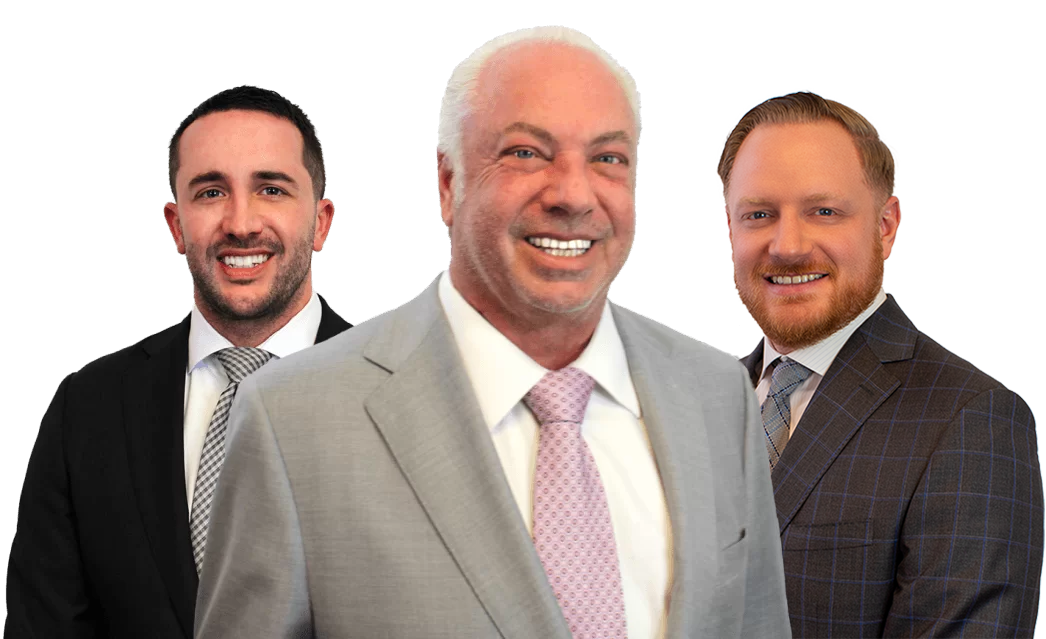
Being hospitalized after a car crash is stressful and overwhelming. Anticipating the cost of an emergency room visit after a car accident alone can make recovery seem daunting. After a car accident in Roseland, New Jersey, what you do in the days and weeks following your hospital stay is crucial. In fact, it can make all the difference in your rehabilitation and post-accident life.
If I Go to the Hospital After a Car Accident, Who Pays?
In New Jersey, personal injury protection (PIP) coverage is mandatory under all auto insurance policies. Many people use it as a primary source for covering medical bills after a car accident. Common sources for paying car accident-related medical costs include:
- Standard PIP Coverage – PIP coverage typically includes hospital bills, surgeries, rehabilitation, follow-up appointments, physical therapy, and medically necessary procedures. Policyholders can choose their coverage limit. Higher limits provide more comprehensive protection in cases of severe injuries and can offer additional benefits like compensation for lost wages.
- Basic PIP Coverage – This PIP coverage is designed for drivers seeking lower premiums. While it still provides essential medical coverage after being hospitalized in a car crash, it has lower coverage limits and may not adequately cover costs for intensive care or severe injuries. If your injury costs exceed your policy’s coverage, you may have to cover the remaining balance.
- Your Health Insurance – If your medical expenses exceed your PIP coverage limits, or if you chose your health insurance as the primary source for medical bills when you purchased your auto policy, your health insurance may cover additional costs. Still, you may need to pay for deductibles, co-pays, or other out-of-pocket expenses.
The Importance of Medical Records in Your Personal Injury Claim
Medical records play a crucial role in any personal injury claim, especially when you’re immediately hospitalized in the aftermath. These records document the severity of your injuries, treatments received, and your recovery process. Common medical records include:
- Physician Notes – These records include detailed information about your symptoms, the doctor’s observations, diagnoses, and the treatment plan. The notes help establish a timeline of your condition and provide insight into the medical care received during your hospitalization.
- Diagnostic Tests – Diagnostic testing can help detect both obvious and hidden injuries, such as fractures, internal bleeding, tissue damage, concussions, or spinal injuries, which might not be immediately apparent during a physical examination.
- Prescription Medications – Prescriptions are often part of the treatment plan following hospitalization. These medications may include pain relievers, anti-inflammatory drugs, muscle relaxants, antibiotics, and other treatments designed to manage your symptoms, promote healing, or prevent complications.
- Surgical Procedures – Surgery may be necessary to repair injuries that cannot heal through conservative methods like medication or physical therapy. Documentation related to surgical procedures include pre-and post-operative reports and observations from the operating physician. These notes detail the nature of the surgery, the risks involved, and the outcomes, like possible complications during or after the procedure.
Documenting Expenses During and After Hospitalization
Accurate documentation of expenses is crucial when seeking compensation for medical bills and other related costs after a car accident. Maintaining detailed records will help you. Be sure to keep copies of the following:
- Hospital Bills – This is often the most significant expense after being hospitalized in a car accident, covering a whole range of medical services required for your treatment and recovery.
- Medical Records – These documents provide critical, detailed information about your injury, including its severity, required medical care, and possible future treatments.
- Out-of-Pocket Expenses – These costs often arise out of recovery, and keeping track of these expenditures can help you pursue compensation to cover these losses. Common examples include medication expenses, medical equipment, and transportation costs.
- Lost Wages – Missed income is a critical loss after a car accident, especially if your injuries prevent you from returning to work for an extended period. Obtain a letter from your employer verifying the hours or days missed and your regular rate of pay.
Preparing for the Long-Term Effects of Car Accident Injuries
Recovering from a car accident often involves more than addressing immediate injuries. Many patients who are injured from a car accident face lasting physical, emotional, and financial challenges, including:
- Ongoing Medical Needs – Some injuries, such as spinal cord damage or traumatic brain injuries, require long-term care. Follow your physician’s treatment plan and attend follow-up appointments to monitor your recovery.
- Mental Health Support – Car accidents can result in heightened feelings of anxiety, depression, and the possible development of post-traumatic stress disorder (PTSD), and pursuing mental health treatment can help you cope with these challenges.
- Financial Adjustments – If your injuries impact your ability to work or earn at your pre-accident capacity, the financial implications can be devastating, requiring you to explore disability benefits, vocational rehabilitation programs, or career retraining options.
How a Personal Injury Lawyer Can Support Your Case

Calling a car accident lawyer to help you after a car accident can provide critical support to help you pursue compensation. They can handle various steps, including:
- Collecting Evidence – An attorney can conduct a thorough investigation into the accident, gathering police reports, collecting medical records, and even securing expert testimony if needed.
- Calculating Losses – A lawyer can use their previous experiences to accurately calculate your injury-related losses, including past, present, and future medical costs, lost wages, and pain and suffering, to pursue the compensation you need.
- Negotiating with Insurance Companies – An attorney can handle all communications with insurers, including settlement negotiations. Insurance adjusters may try to downplay your injuries or pressure you into settling quickly for a low amount, but your lawyer can protect you from these tactics to seek the full amount you need.
- Pursuing Litigation – Your lawyer can file a lawsuit in court if both sides cannot reach an agreement on a fair settlement. In some circumstances, initiating the litigation process can lead to a settlement.
Contact a New Jersey Car Accident Lawyer Today
At Brach Eichler Injury Lawyers, we know how intimidating recovering from a car accident can be. You don’t need to be alone. Our experienced car accident attorneys will help you every step of the way. From assembling your medical records to fighting with insurers for the compensation you need, we will always represent you and your best interests. Contact our legal team at (973) 364-8300 or through our online form for your free consultation. Check out our recent case results to know why you should trust us.
Related Posts
What is the difference between an Uber Accident and a Normal Car Accident?
What Makes a Lyft Motor Vehicle Accident Case Different from a Normal Accident Case?
Written by: Brach Eichler Injury Lawyers Last Updated : March 12, 2025We are the trial attorneys with the experience and knowledge to get you the results you deserve. At Brach Eichler Injury Lawyers, we take time to get to know you, as well as your case. We are committed to excellence. It is important for our team to understand your fears, concerns and expectations. We are always available to answer any questions, and are willing to come to you if you are unable to come to us.
Contact Your New Jersey Personal Injury Attorneys
